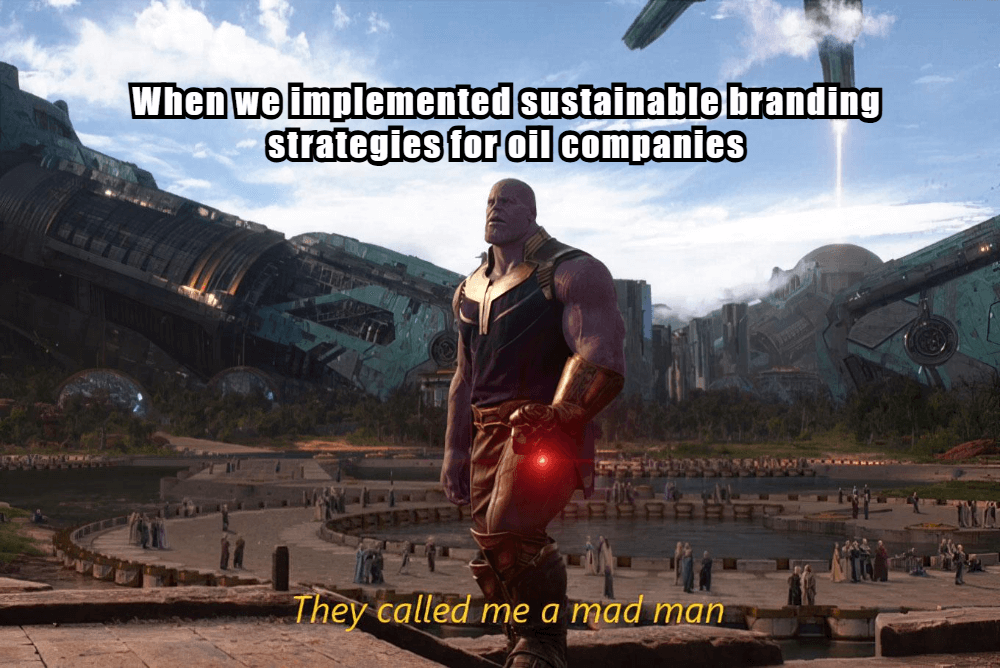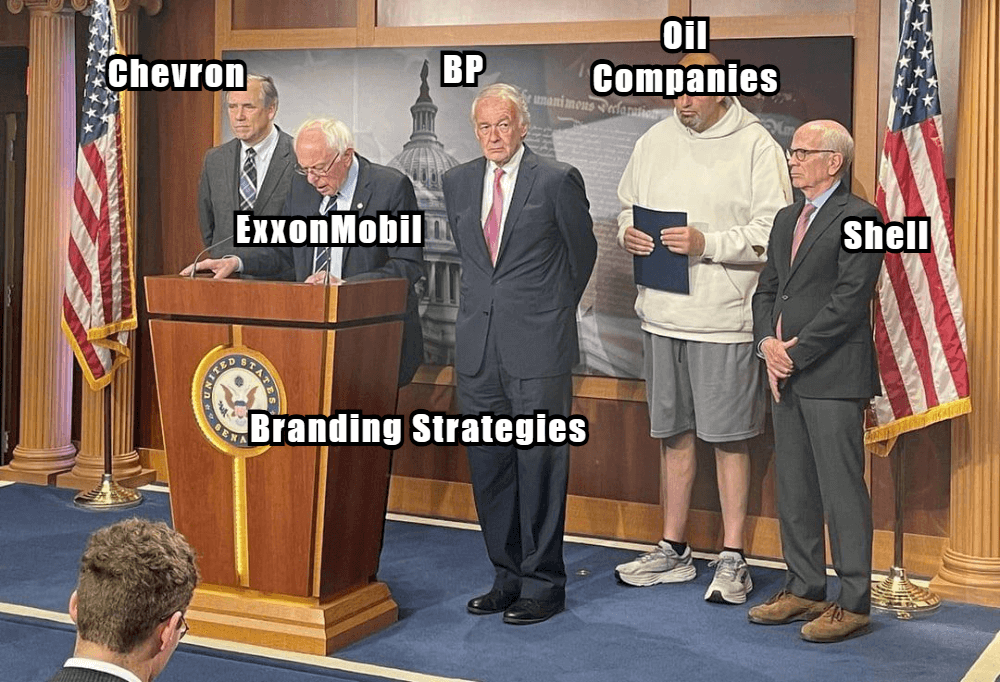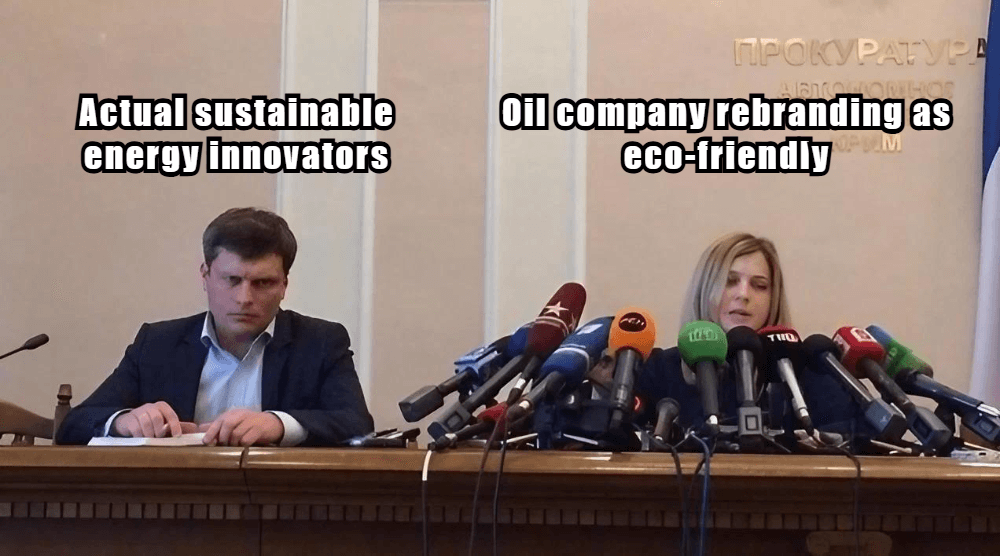Today, it is an era of speedy technology advancement and changing consumer tastes. Oil companies are therefore in for some unprecedented challenges in maintaining market positions as well as a healthy public image. A technological shift like digital transformation has dramatically altered the oil and gas sector in terms of business operation processes and marketing and brand strategies. This essay addresses the following on digital transformation, key trends, challenges, and opportunities in the evolving branding strategy for oil companies.
Changing Oil and Gas Branding Landscapes
The Drive Towards Sustainability
The oil and gas industry is in the process of being reshaped due to growing pressure regarding climate change and global clean energy requirements. It profoundly changes branding strategies.
- Green Branding: Most oil companies are repositioning themselves as energy companies and are projecting heavy investments in the renewable energy sectors. A classic example of this can be seen with BP; it repositioned itself as an “energy company,” and its market share rose 10% in the renewable energy sector in 2023.
- Sustainability Marketing: A survey conducted in 2023 revealed that 78% of consumers will prefer to purchase from oil and gas companies if proven to be environmentally responsible. The same trend is forcing organizations to brand their sustainability initiatives and integrate them into marketing communications.
Digital-First Approach
The digital revolution has called for a shift towards becoming more digital-first branding strategy:
- Online Presence: In 2022, 80 percent of B2B oil and gas buyers made an online search prior to buying. This means that oil companies must have a strong online presence in the industry.
- Social Media Engagement: In 2023, 60% of consumers in the oil and gas industry followed their favorite companies through social media. The same has seen the importance of social media rapidly increasing in the branding and communication of an enterprise.

Key Digital Transformation Strategies for Oil and Gas Branding
1. Data-Driven Personalization
Oil firms have used data analytics with much more personalized advertising using digital transformation in marketing.
- Customer Understanding: More sophisticated analytics tools help firms gain a better understanding of their customers’ preferences and patterns.
- Personalized Communications: Personalized marketing efforts have led to a 15% increase in customer participation in the oil and gas companies this year 2023.
2. Content Marketing and Thought Leadership
Content marketing has been a very important component of branding strategies for oil companies:
- Industry Expertise: 73% of oil and gas companies focused on content marketing in 2022; they aimed to become thought leaders.
- Educational Content: Companies are creating their own valuable content such as blog posts, white papers, or webinars to educate them and build trust.

3. Virtual and Augmented Reality Experiences
These emerging technologies are offering fresh ways through which oil firms can connect with their public:
- Immersive Experiences: 20% of the oil and gas companies incorporated virtual and augmented reality technologies for their marketing programs in 2022.
- Brand Storytelling: It helps businesses to tell the story of their brand in much more engaging and interactive ways.
4. Digital Brand Reputation Management
Managing a brand’s reputation online has been critical in the new digital world:
- Online Monitoring: Most digital platforms have tools for online reputation management. Organizations are investing in those tools.
- Crisis Management: The Digital Transformation has made quick responses possible in case of a PR crisis. This minimizes damage from reputational harm that might arise.

Challenges and Opportunities in Digital Branding for Oil Companies
Challenges
- Adherence to Regulatory Frameworks: Environmental regulations in increasing trends affect marketers in making efforts to deliver brand values and the benefits of the product.
- Changing Consumer Perception: There is a need for oil companies to change their brand according to the shift in consumer perceptions toward cleaner energy.
- Skills Gap in Digitalization: The speed of digitalization can create a gap for the marketing team.
Opportunities
Brand Differentiation: In such a crowded market, this is a new way through which oil companies can differentiate themselves through digital platforms.
- Enhanced Customer Engagement: Digital tooling allows for more direct and personalized engagement with the customer and stakeholders.
- Data-Driven Decision Making: Advanced analytics can inform much more effective branding and marketing.
Case Studies: Successful Digital Branding Strategies for Oil Companies and Gas

Shell’s Digital Transformation
Shell was one of the leaders in digitizing branding:
- Logo Makeover: In 2022, Shell unveiled a new logo that focuses on cleaner energy solutions.
- Digital Storytelling: Total puts its green feats and stories on innovative projects on its website.
Total’s Rebranding into TotalEnergies
Total totally rebranded itself to change the course of its business through renewable energy:
- Name Change: The company named itself TotalEnergies, a signal of their commitment to energy diversity.
- Visual Identity: The company has adopted a new visual identity that reflects the direction toward clean energy sources.

The Future of Digital Branding in Oil and Gas
The future of digital branding for oil companies would be:
- AI Branding: AI is going to personalize the brand experience and optimize marketing.
- Blockchain for Transparency: Blockchain is all about supply chain transparency along with sustainability.
- Voice Search: Voice search will go big, so the oil company will have to optimize for it.
- Influencer partnerships: The oil company will see an increase in partnerships with influencers, as that’s a step toward creating credibility and tapping into more new audiences.
Conclusion
This has been possible because of new branding in oil companies after the digital revolution. Because the industry struggles with the problem of environmental and the emergence of new needs among its consumers, new opportunities appear to connect more intimately with customers, make the products customized, and thereby, differentiate the brand by the tool of digital solutions and platforms. So effective branding in the new world means the firm shows off its old-world strength while committing to sustainability and innovation.
Companies embracing digital branding will be better prepared for the future. They will be able to get closer to their stakeholders, have more effective communication of value, and make better perceptions in a digital world through data analytics, emerging technologies, and digital platforms.
It will be those who see digital transformation as more than just a technology upgrade but as a redefinition of how they touch and deliver value to their customers and the world.
FAQs: Digital Transformation in Oil and Gas Branding
Q: Why is digital transformation important for oil company branding?
A: It assists oil companies in being responsive to the change in the behavior of consumers, building more engagement with customers, and promoting sustainability initiatives through social media.
Q: What do oil companies use social media for in branding?
A: Social media can be used for updating their activities, engaging customers, and developing brand communities. By 2023, 60% of consumers of the oil and gas industry will follow their favorite companies on social media.
Q: How do oil companies use content marketing for branding in the oil and gas sector?
A: Content marketing helps the oil companies create thought leadership and educate audiences while creating trust. In 2022, 73% of the oil and gas companies reported that they had invested in content marketing.
Q: How do oil companies align sustainability within their branding strategy?
A: Many oil companies, rebranding as energy companies, are highlighting their investments in renewable energy and their responsibility to the environment in every marketing campaign.
Q: What are the challenges for oil companies in digital branding?
A: Key challenges include regulatory compliance, changing consumer perceptions, and the need to adapt rapidly to changing digital technologies.

